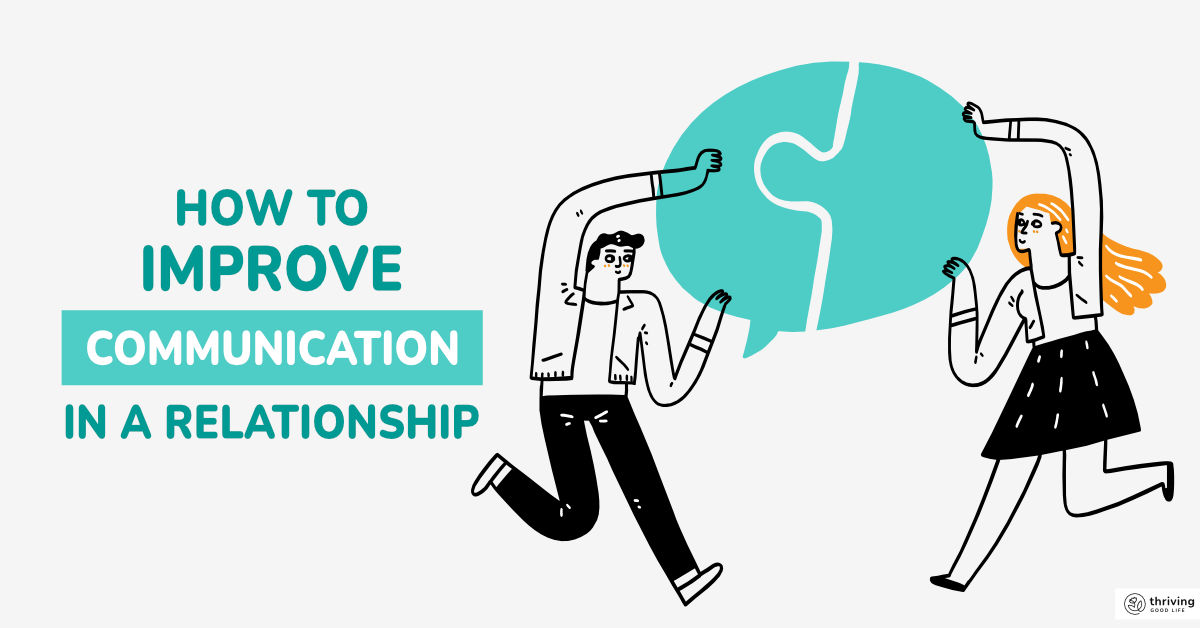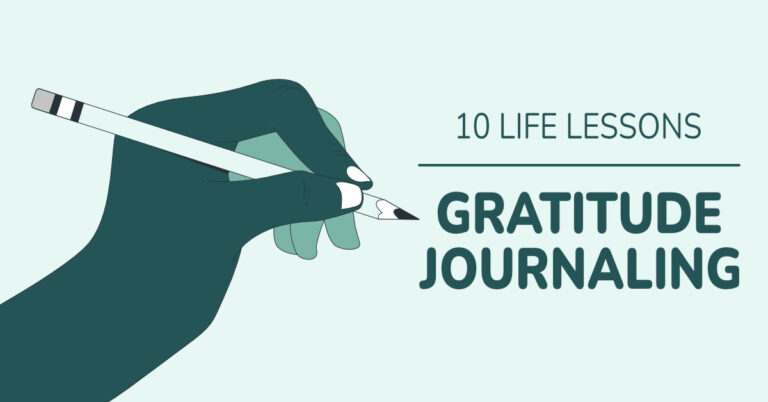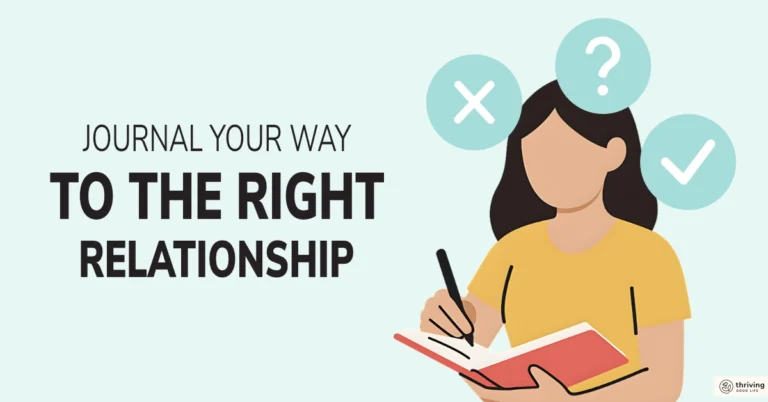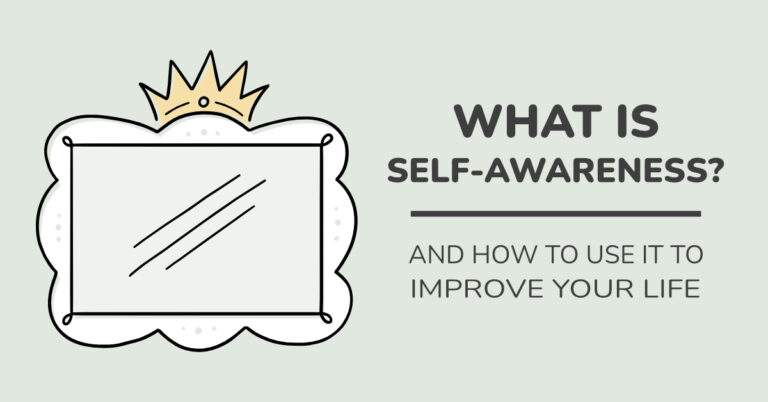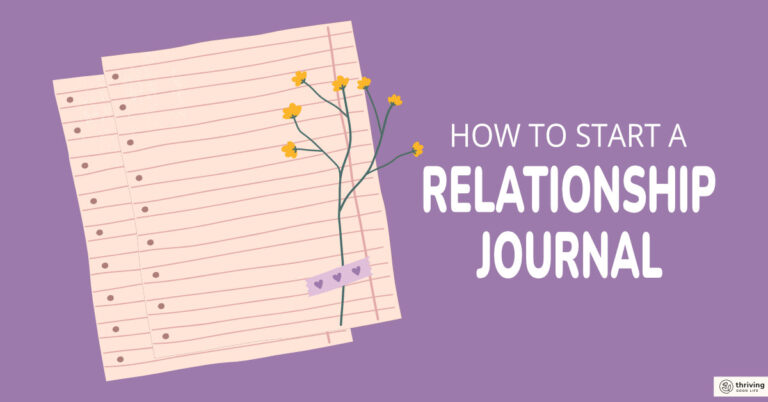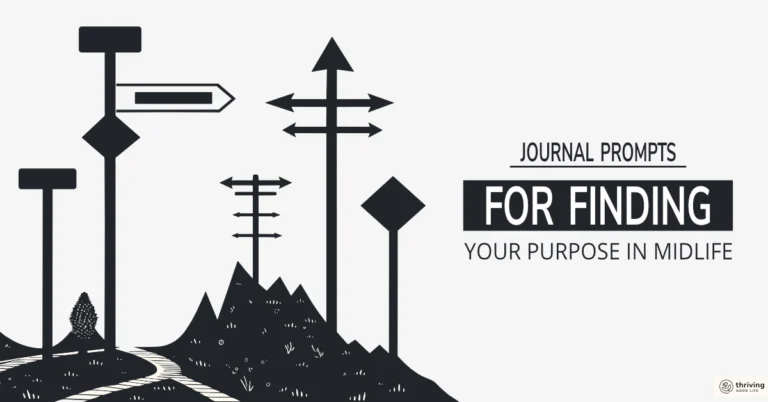Being in a relationship with someone who’s not big on communicating, can be annoying as hell. Particularly if you’re someone who likes to communicate. But trying to force your other-half to respond, only makes them dig their heels in deeper. This too, is annoying as hell… for the both of you.
When it comes to interpersonal communication, there are a couple of universal truths we recognise. 1) Healthy communication is a two-way street. It builds mutual trust, support, respect and intimacy 1. All the gushy stuff we crave. 2) Poor communication skills in a relationship, romantic or otherwise, mark the early demise of that union 2.
So, when we can’t seem to establish a positive emotional connection with the ones we love, we freak out. We try to force a reaction. All we want is for our partner to respond in a loving and supportive way.
How can we encourage them to be THAT person?
I’ll get on to that in a moment, along with a few strategies you’ll want to avoid.
But first, a question…
How Did Things Get This Bad?
Remember those early days in your relationship, where you couldn’t get enough of each other. You’d stay up, talking into the wee hours. You’d call each other on the phone 3. Often. Chatting about everything, yet nothing at the same time.
And every once in a while you’d stop talking, and just listen to one another breathe (no, not THAT sort of breathing. Stay with me).
I’m going to assume back then you communicated well enough.
But these days you’re lucky to receive a couple of grunts in response to what you’re saying. That’s on a good day. And on a bad day – it’s World War fricking III.
Dissatisfaction with a partner’s lacklustre response can cause all sorts of resentful, angry, overly critical thoughts 4.
In these moments, we’re quick to blame our partners. Labelling them as the ones who are ‘impossible to talk to’.
And yeah, that label might very well be true. On some level.
But does it fix things though?
Nope. Not really.
It divides us even more.
We grow tired of being misunderstood. We give up trying to communicate ‘effectively’, and unwittingly give into unhealthy interactions.
Recognising Patterns of Poor Communication in a Relationship
I’m not trying to be a Debbie downer 5. But we can’t improve communication, unless we’re willing to take a long, hard look at ourselves first. We need to understand the part we play in each exchange, and how that might be triggering the other persons negative reactions.
So, let’s tippy toe into the dark side for a moment.
Communication Styles You’ll Want to Avoid
If you want a long-lasting, happy, healthy relationship, there are four negative patterns of communication you’ll want to avoid.
In one of his earlier books called What Predicts Divorce? psychologist Dr. John Gottman6 calls these the Four Horsemen of the Apocalypse. And for good reason. Here they are, in no particular order.
The Four Horsemen of the Apocalypse
Criticism
We’re not talking about the occasional dig you have at your partner for say, leaving the toilet seat up. We’re talking about the exhaustive nitpicking that involves personal attacks on their character and/or personality.
A couple of things are going on here.
1) The person on the receiving end is getting the confidence knocked out of them on a regular. It stands to reason they’re going to feel progressively rubbish about themselves (and most likely pretty rubbish about you too).
2) The criticisms continue to escalate, taking on new depths of viciousness.
Neither of these things bode well for the relationship. And more often than not, lead on to one of the deadliest Horsemen – contempt.
Contempt
The proverbial nail in the coffin.
This is when a partner communicates sheer disgust through their words, actions or body language. It’s the rolling of the eyes in disrespect, the sarcastic little remarks, hostility, the look of repulsion, and hurtful insults. In a nutshell, it’s using cruel and condescending language to belittle the other person.
This style of negative communication is not only psychologically and emotionally damaging, it’s physically destructive too 6.
Once contempt claws its way into a relationship, it’s a difficult pattern to break. It stokes the fire for even more conflict to follow.
Defensiveness
The moment we receive uncomfortable or negative feedback, up go our defences. We feel hurt, judged, blamed, ashamed, angry. It’s only natural that the desire to protect ourselves kicks in. But we have a tendency to fight back dirty.
Sometimes it’s in the form of denial, and lame excuses, or a stinging rebuttal.
Other times we dole out the silent treatment.
We do the most to avoid being wrong, or looking bad. But in doing so, we end up shirking responsibility for an action or behaviour that caused pain.
We’re telling our partners that we care more about deflecting blame 7. than we do about fixing an underlying issue which is affecting the relationship.
And that’s not cool.
The upshot of it is this: Defensiveness is disruptive and dismissive. It invalidates your partner’s reality of what they’re experiencing 8. And makes it that much harder for them to share anything with you in the future.
Stonewalling
Trying to talk to someone who flat out refuses to interact with you. It’s the worst. What you have to say, is not what they want to hear. And so they choose to ignore you instead. Physically turning their back on you. Or walking out of the room. It’s like trying to talk to a… stone. Guess that’s why they call it stonewalling.
Although frustrating, when a partner emotionally disengages from difficult conversations in this way, it’s a sign they’re psychologically or physiologically overwhelmed 9, and don’t know how best to handle the situation.
Shutting down is their self-protection strategy.
7 Ways to Communicate Better in Relationships
Look closely at the Four Horsemen. You’ll see some common traits. The use of harsh language, poor listening skills, the silent treatment, a general lack of empathy, compassion and kindness.
If we want better communication; to be heard, respected and understood, we have to get better at all of the above. We’ve got to be the ones to model the behaviour we expect in return. Yes, even in situations of great fist clenching and tongue biting. There’s something mighty powerful about holding your own when the other person is truly being an ass.
Here are a few tips that might help.
Speak Up
If your partner is crossing boundaries or otherwise upsetting the relationship, you have to make a choice – keep putting up with problem behaviour, as you pull your hair out in secret. Or speak up.
Some people think it’s easier to suck it up. To let it go. And in some instances, that may be the better option. But, not when you have ongoing issues that need to be dealt with. A lack of communication is the thing that’s prolonging the pain. That pain then starts to fester as angry, resentful thoughts.
When we hold onto angry thoughts, feelings and emotions, we get angrier, and angrier, and eventually explode into rageful outbursts 10. We either turn that outburst on others, or internalise it — beating ourselves up for allowing a situation to continue. What’s even more concerning is that those suppressed emotions end up adversely affecting our physical health 11.
Recognise you have a legitimate complaint, as well as the right to address it. Be open and honest about the issues which drive you crazy. But only if it’s safe to do so 12.
Appreciate the Good
Your partner isn’t this all knowing, ever-perfect being who gets everything right all of the time. No no. Sometimes you look at this person and think ‘what a slob’.
I’m conjuring up the image of a guy with a heart of gold, slowly scratching his nether regions while watching TV, totally oblivious to the growing collection of coca-cola cans he’s left lying around the house. Ask me why this image is so vivid. On second thoughts, don’t ask. The point is, my focus was on his slovenly behaviour in that moment, and not on his positive attributes.
It’s said that for every interaction that drives you nuts, there’s an average of five positive interactions that have the potential to flip that on its head 13.
So remember the good, and appreciate the stuff your partners does well. For your own sanity, as well as the health of the relationship.
Accept Responsibility
We’re human. We mess up. We mess up more often than we care to admit. But within the weeds of that mess, there’s one thing we can do to restore our dignity. And that is to accept responsibility for our actions and behaviour.
Not just accepting responsibility for things that clearly were our fault, like forgetting to fill the car with fuel, or pick up the dry cleaning. In a way, it’s easier to take responsibility for that stuff, because it’s obvious you didn’t do the thing you were supposed to do.
Taking responsibility gets trickier when your role in the mess isn’t as clear cut.
Let’s say your partner rushes home from work with amazing news. They’re excitedly telling you about this awesome thing. But you’ve had a real stinker of a day. The house is in a mess, and you’re in no mood to talk.
So your responses are cold and distant. They’re going on and on, trying to engage you in productive conversation. Eventually, they pick up of your downer vibe. They see you aren’t really listening, and they grow frustrated. You grow frustrated because all you want is to be left alone. Things escalate.
In that moment, it would be easy to blame your partner for not being sensitive to the fact you didn’t want to talk. But were they the only ones at fault here? Or did the non-responsiveness contribute to the escalation of the argument?
A bit of both, right?
If your partner’s feeling a certain way because of something you said or did (or didn’t do), they need you to acknowledge that. Accept responsibility for the part you could have handled better.
Recognise the Power of Your Words
Remember that old saying, ‘sticks and stones may break my bones, but words will never hurt me.’ Well that’s lies. Not the sticks and stones bit. They’d hurt for sure. But words from a loved one, especially when laced with blame and condemnation, can cut deep.
Some therapists recommend using I-statements, particularly when you need to address a tricky or problematic issue. These statements help you express your thoughts and feelings, but in a non-accusatory way.
So instead of saying:
‘You never listen to me. You love your damn phone more than you love me. You’re NEVER there for me.’
You’d say something along the lines of:
‘I get upset when you scroll through your phone while I’m trying to talk to you. It makes me feel as though what I’m saying is unimportant. If you can put your phone away and focus on our conversation, I’d really appreciate it.’
If it’s easier, you can try expressing your gripe in written form. It might feel like a less intimidating way to address an issue that’s bugging you.
Either way, by calmly communicating how their behaviour is affecting you, you’re re-asserting your boundaries, while taking ownership of your emotional reactions, without attributing blame.
A word of warning: Although there’s evidence of I-statements working well, this isn’t always the case. Poorly executed I-statements can be perceived as a sneaky way to manipulate, blame or shame your partner 14.
Also, consider the dynamics of your relationship before throwing around I-statements. If your partner sees being vulnerable as a form of weakness 15, you’d get a better response by presenting them with facts over feelings.
Watch Nonverbal Communication
Be mindful of the nonverbal vibes you’re putting out there. In the heat of the moment we can forget micro expressions such as emotional tone of voice, pitch, body language, eye contact and proximity. These speak volumes.
Watch out in particular for conflicting messages, where your mouth is saying one thing, and your body is communicating something completely different. If you’re verbally expressing that you’re not angry but your body, facial expressions, and general being convey otherwise, guess what? The non-verbal cues are what people will actually believe 16.
Also, pay attention to what their body language is saying. Are they leaning in, leaning back, screwing up their facial features, sounding or looking agitated? Is now really a good time to talk? If not, save that conversation for another day.
Pause
It feels like a nano-second. Right before we say, or do something that will change the direction of a conversation. That’s when you take a breath.
You want to express how angry, frustrated and disappointed you are. But is what you’re about to say going to help or hinder?
Some people are great at holding themselves back in heated situations. Others, and I fall into this camp, are not so great at controlling what’s about to come out of their mouths. That nano-second is your window to regain control.
Okay, so it’s easier said than done. But in that moment, focus on recognising how you’re feeling. If it has the potential to blow up the convo, hit the pause button.
That could mean counting to ten in your head before speaking. Or it could mean agreeing to a time out while you give your partner a wide berth.
And during that time, go do something that nurtures your body, and takes the stress away. Reading, exercising, journaling or meditating are good options.
It takes practice to recognise when you need to pause. But mindfulness training can get you to a place where it starts to feel second nature.
Consider an Intervention
It’s difficult trying to improve communication in a romantic relationship if you’ve both reached a point where screaming matches are the norm. If that’s where you’re at, it may be time to consider an intervention – an organised attempt to steer things back to smooth waters.
Couple’s therapy, communication workshops and retreats are common options. But, if that feels like too much too soon, and you’re not ready to seek professional advice, there are alternatives.
You could try hosting your own therapy sessions. Set aside some uninterrupted time each week, or month to discuss intimate matters. This could be a regular stand alone event, or part of a date night activity. There are free worksheets and tools to help you work through communication issues.
Alternatively, you could start a couples journal.
Whatever you decided, it needs to be something you’re both willing to commit to for the long term. There are no quick fixes here.
I hope you’ve found this article helpful, and that there’s at least one thing you can try to bring effective communication skills into your relationship.
Footnotes
- Laurenceau, J. P., Barrett, L. F., & Pietromonaco, P. R. (1998). Intimacy as an interpersonal process: the importance of self-disclosure, partner disclosure, and perceived partner responsiveness in interpersonal exchanges. Journal of personality and social psychology, 74(5), 1238–1251.
- Although there’s a bit of a chicken and egg debate around this, see: Lavner, J. A., Karney, B. R., & Bradbury, T. N. (2016). Does couples’ communication predict marital satisfaction, or does marital satisfaction predict communication?. Journal of marriage and the family, 78(3), 680–694.
- Throwback to the times when a telephone was a tool used for talking into, not a rapid-fire texting machine. Man do I sound old.
- Vangelisti, A.L., Middleton, A.V., & Ebersole, D.S. (2013) Couples’ online cognitions during conflict: links between what partners think and their relational satisfaction, Communication Monographs, 80:2, 125-149.
- My sincerest apologies if your name is Debbie. I happen to think Debbie’s are great.
- Lisitsa, E. (2013). The four horsemen: contempt. The Gottman Institute. [Online].
- Goulston, M. (2013). Don’t get defensive: communication tips for the vigilant. Harvard Business Review. [Online].
- LaDouceur, P. (??) Whose fault is it? How blame sabotages relationships. MentalHelp.Net. [Online].
- Moland, M. (2011). Conflict and satisfaction In romantic relationships. Master’s Theses. 154.
- University of Texas at Austin. (2011). Psychologists find the meaning of aggression: ‘Monty Python’ scene helps research. ScienceDaily. Retrieved June 4, 2021.
- Chapman, B. P., Fiscella, K., Kawachi, I., Duberstein, P., & Muennig, P. (2013). Emotion suppression and mortality risk over a 12-year follow-up. Journal of psychosomatic research, 75(4), 381–385.
- I realise it’s not always possible to speak up, particularly if you’re in an abusive relationship. But you can find resources and support at Refugee – National Support Helpline in the UK, and the National Domestic Violence Hotline in the US.
- Benson, K. (2017) The magic relationship ratio according to science. The Gottman Institute. [Online].
- Johnson, J.A. (2012). Are ‘I’ statements better than ‘You’ statements? Psychology Today. [Online]
- Key, K. (2018). The pros & cons of “I-Statements”. Psychology Today. [Online]
- Burgoon, J. K., Guerrero, L. K., & Floyd, K. (2016). Nonverbal communication. Routledge.

